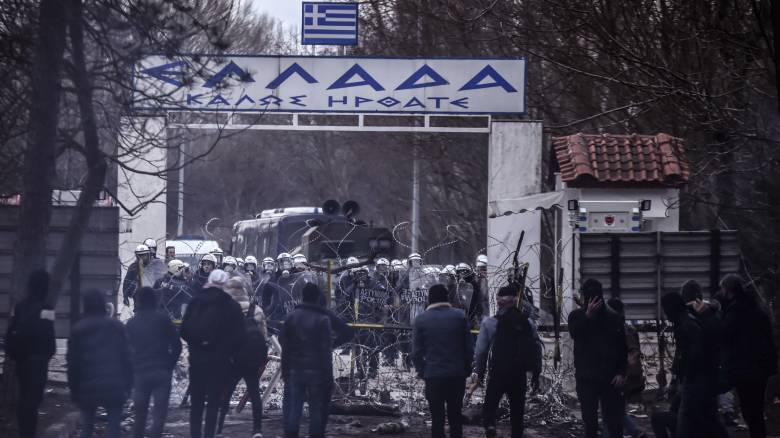
Editorial Ta Nea: Deterrence
Our country must not withdraw from a parallel diplomatic battle on all fronts that will remind one of the fact that Greece’s borders are also the borders and last line of defence of the EU.
In February, 2020, Ankara was waging its particular brand of hybrid war against Greece on the ground in the Evros border region, exploiting refugee flows at the time.
Two years later, the danger has reappeared for two basic reasons.
The first is related to Turkey’s domestic crises, which are often exported to neighbouring countries.
The second has to do with the March, 2016, EU-Turkey Statement, a joint action plan on the refugee crisis, which due to changes in the EU and new realities is being revised.
Ankara is aware of that and is exerting pressures. The positive element in a prospective resurgence is that the Greek government and military are taking into account planning and are vigilant.
The recent visits of Greek ministers to the border region, armed with a strategy of deterrence and defence, were no coincidence.
Beyond battleworthiness and vigilance, the entire new hybrid threat should be of concern to the EU.
Our country must not withdraw from a parallel diplomatic battle on all fronts that will remind one of the fact that Greece’s borders are also the borders and last line of defence of the EU.
We have accumulated experience, and in the coming period all sides should be aware of that.
- ΟΔΔΗΧ: Επανέκδοση 10ετούς ομολόγου
- Ώρα τελικών στη Volley League γυναικών: Πρώτη «μάχη» Ολυμπιακός – ΠΑΟΚ στον Ρέντη
- Εφιάλτης για τους γιατρούς στα νοσοκομεία η μικροβιακή αντοχή – Έρχονται 92 επιτηρητές λοιμώξεων
- Ο Ιππόλυτος της Κατερίνας Ευαγγελάτου μετά τη επιτυχία στο Hong Kong επιστρέφει στο Ηρώδειο
- Μπιλμπάο – ΠΑΟΚ: Έτοιμος να γράψει ξανά ιστορία ο «Δικέφαλος» κόντρα στην Μπιλμπάο
- Δώρο Πάσχα: Σήμερα η τελευταία μέρα καταβολής του – Τι ισχύει για τους απολυμένους












